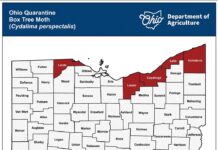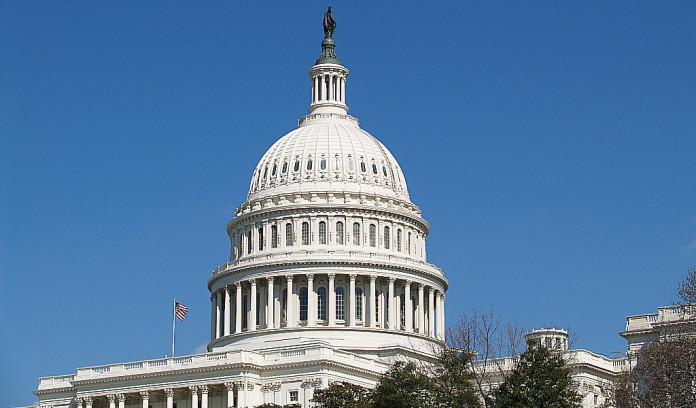SALEM, Ohio — President Donald Trump’s first budget vows to put “taxpayers first” through a series of spending cuts that would eliminate the federal deficit in 10 years, invest more heavily in defense and border security, and cut more than $400 billion in what he calls “welfare reform and improper payments.”
Included in his budget is a $29 billion cut to crop insurance, a $193 billion cut to the Supplemental Nutrition Assistance Program (SNAP), a $6 billion reduction in conservation funding that includes cutting the Great Lakes Restoration Initiative, and eliminating the market access and foreign market development programs.
Congress will ultimately write its own version of the budget, but the presidential budget is considered a good outline of the administration’s priorities.
Nearly all of the major agriculture organizations responded negatively to the cuts, warning that they jeopardize existing farm bill programs, and the future of the next five-year farm bill, which Congress is currently forming.
Difficult timing
The National Corn Growers Association said reducing crop insurance is “shortsighted,” especially during an extended period of low commodity prices.
Crop insurance was the primary risk management tool approved during the 2014 farm bill, and requires farmers to pay about 40 percent of their own insurance premiums.
The American Farm Bureau Federation said the president’s budget also fails to recognize agriculture’s contribution to budget deficit reduction, both currently and historically, which includes a voluntary $23 billion reduction in the 2014 farm bill.
In a released statement, American Farm Bureau President Zippy Duvall said AFBF members are concerned about the federal budget deficit, too, “however, we also know that agriculture has done its fair share to help reduce the deficit.”
Out of touch
Duvall said the budget fails to recognize the current financial challenges farmers face, while gutting federal crop insurance, reshaping conservation efforts, and negatively impacting consumer confidence in meat and poultry inspections.
“Clearly, this budget fails agriculture and rural America,” he said.
Roger Johnson, president of the National Farmers Union, called Trump’s budget “an assault on the programs and personnel that provide vital services, research, and a safety net to America’s family farmers, rural residents and consumers.
Trump’s budget plan was a major talking point during the Senate ag committee’s hearing May 25, where members kicked off the discussion of what should be in the next farm bill.
Risk management
Sen. Pat Roberts, R-Kansas, and committee chairman, reminded the committee a half-dozen times of the importance of crop insurance as the most important risk management tool that farmers have.
“Now is not the time for additional cuts,” he said, suggesting committee members should instead look at what is working and not working in the farm community.
Roberts said in the past year, farmers have faced historic wildfires, blizzards, floods, diseases and poor planting conditions — things that can be devastating to a farming operation.
”The occupation of farming can be a very challenging profession,” he said. “These weather events, layered on top of the economic conditions, are exactly why it is important that we have a strong risk management tools available to help producers manage during the times of loss.”
Tools needed
Sen. Debbie Stabenow, D-Michigan, and ranking member of the Senate ag committee, said new and experienced farmers alike need risk management tools to survive, including a comprehensive five-year farm bill.
“Farming is the riskiest business there is,” she said.
In a call with reporters after the hearing, committee member and Sen. Sherrod Brown, D-Cleveland, said Trump’s budget would “surely hurt American agriculture and surely devastate rural communities.”
Brown said it also doesn’t make sense to eliminate funding for conservation — especially with all the work underway in Ohio to protect and improve Lake Erie.
“It’s just plain stupid to eliminate them (conservation programs) now,” he said.
As he has done for past farm bills, Brown is planning a series of roundtable events across the state, to hear from farmers and rural Ohioans about what they want in the next farm bill.










